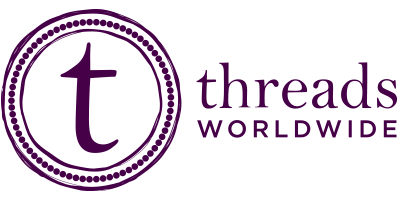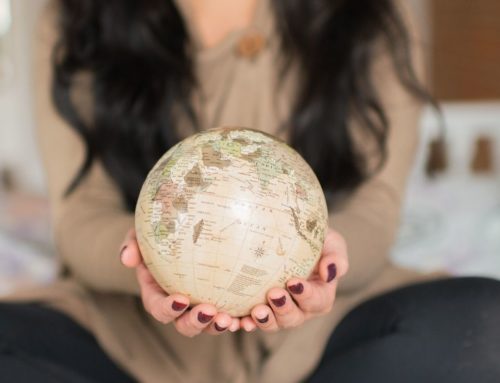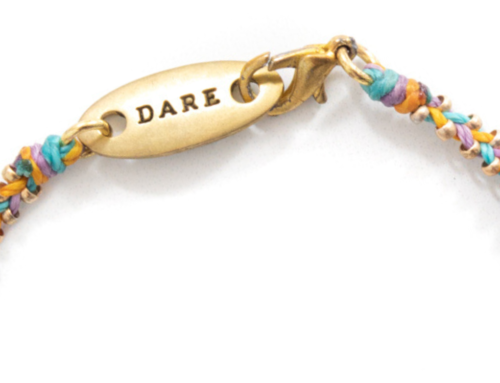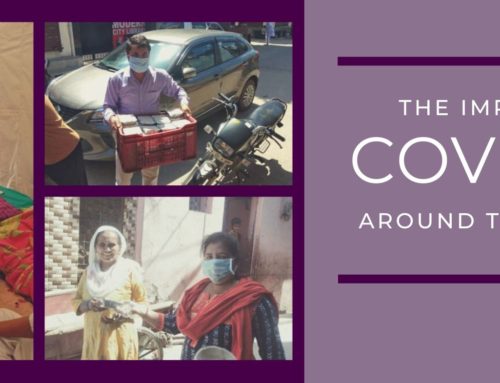At Threads Worldwide, we strive to connect our Threads Sales Consultants with the Artisan Partners we work with, and one of the ways we do such, is providing them with a curated kit of stories, cultural insight, and information, delivered to their email boxes every month. This is just one of the many things we do to make it easy for our Threads Sales Consultants to lead the Threads Movement, by running their own social-mission businesses, and showing the world the world how to shop with heart.
Last month, we highlighted our trip to Ecuador, and provided stories and insight for them to use at upcoming Threads Trunk Shows.
Fashion Revolution Day is coming up on April 24th, so we’re taking time to showcase the artisans who make our jewelry and the power that fair trade has on workers and communities around the world, from providing workers with safe working conditions to paying them fairly and promptly. Ecuador is also a magical country and we want to share our artisan visit story with you! Below, get an overview of our visit to the artisan cooperative we partner with and an inside glimpse into how tagua seed is used to make jewelry.
Two years ago, we had the opportunity to travel to South America, visiting the artisan groups we partner with both in Ecuador and Peru. Both countries were incredible, but Ecuador holds a special place in our hearts, as the artisan group we visited was one of the first we partnered with when we started Threads Worldwide.
After flying into Quito and exploring the city for a day, we journeyed by bus to a rural village near Otavalo to meet the artisan group. The area is surrounded by massive volcanic mountains, and Otavalo has one of the biggest markets in all of Latin America.
We visited the women in their workshop, which was attached to a home. Bags of vibrant beads of all shapes and sizes decorated the shelves, jewelry design templates were displayed on the walls, and artisans were hard at work making beautiful necklaces, bracelets, and earrings. We saw them craft our beloved Mira Necklace, and learned the process from which tagua seeds are used to make it.
Firstly, the tagua nut is a dried seed from the tagua palm tree, which only grows in tropical areas like Ecuador. While visiting the artisan group, we learned that tagua is also known as “vegetable ivory,” as it is just as durable and beautiful as real ivory, but it’s obviously way more appropriate and sustainable to use than real elephant-derived ivory.
It’s a lengthy process to make beads from tagua seeds. Firstly, the tagua nut is derived from a fruit that has many nuts. A hard shell envelopes the nut which contains the seeds. They are harvested, and the seeds are extracted. For 5-8 weeks they are dried, and then are tumbled, polished, dyed with vibrant colors, and then made into beautiful jewelry.
In a similar process, acai seeds, pambil seeds, and coconut shells are used to make our Valencia Necklace. The artisans take pride that the seeds are sustainably harvested and that the jewelry comes from the land. It was humbling to see the immense attention to detail and patience that goes into making the tagua beads and the pride that goes into each and every necklace, bracelet, and earring.
Still curious? Watch this 2 min. video on the process:
Visiting the artisans was such an enriching experience! They were friendly, happy, and you could see how meaningful their job was to them. We heard stories that a sustainable income has allowed them to keep their children in school, return to school themselves, and make their homes safer and more comfortable. We are so thankful for the opportunity to partner with them, and seeing the impact Threads is making in person was priceless.
Our trip to Ecuador was a reminder that little by little, a little becomes a lot, and fair trade is really making an impact in the daily lives of our artisans.We want YOU to join us in our movement of creating life-changing work with women around the world through the fair trade of artisan jewelry!







